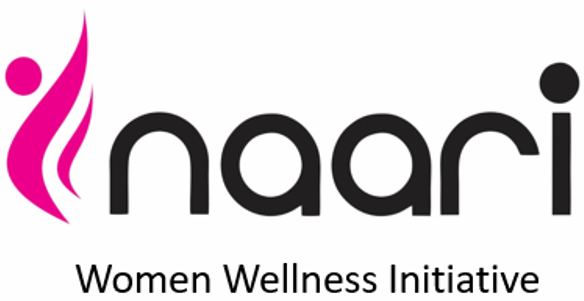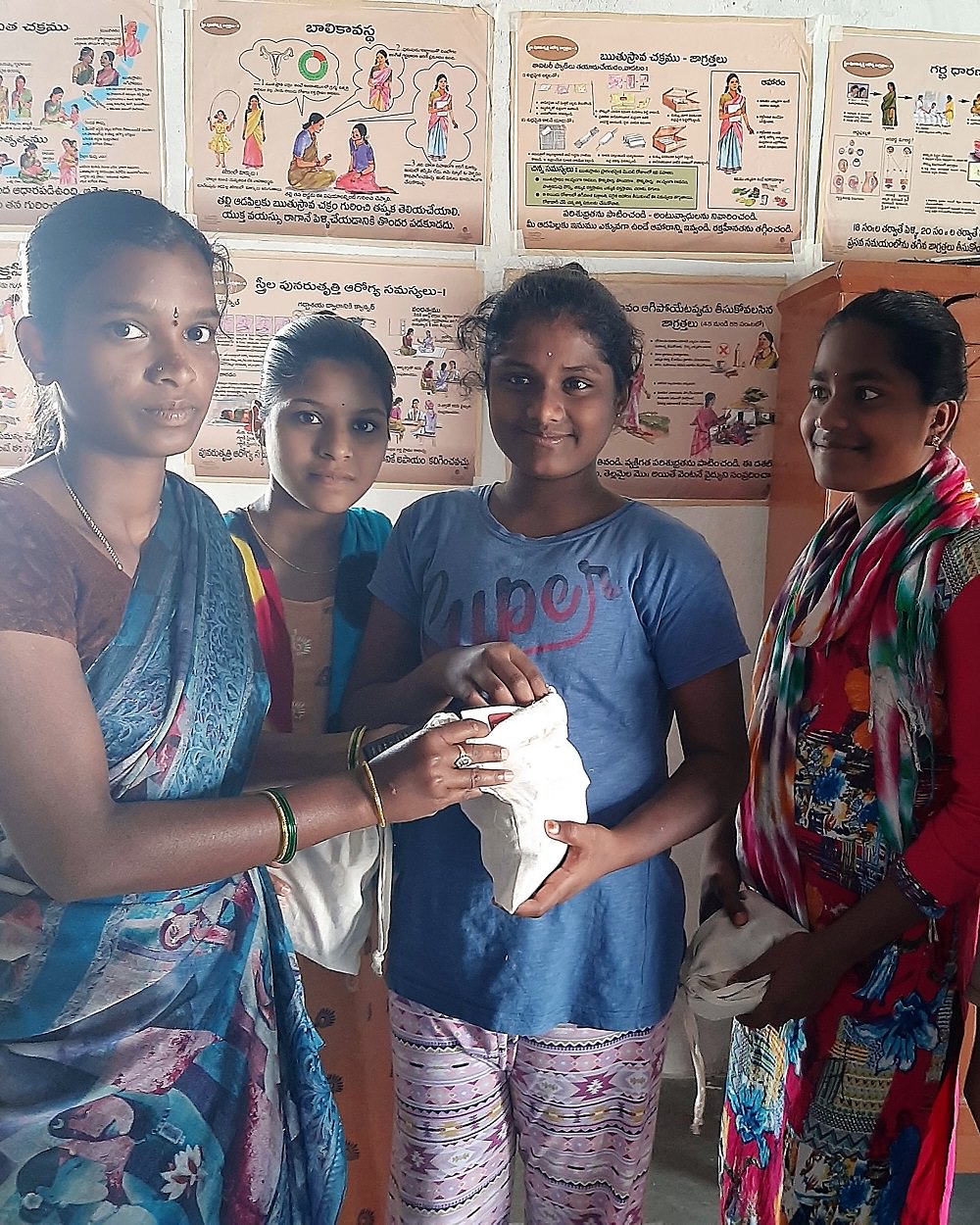
Distribution of Reusable cloth pad kits amongst Adolescent girls
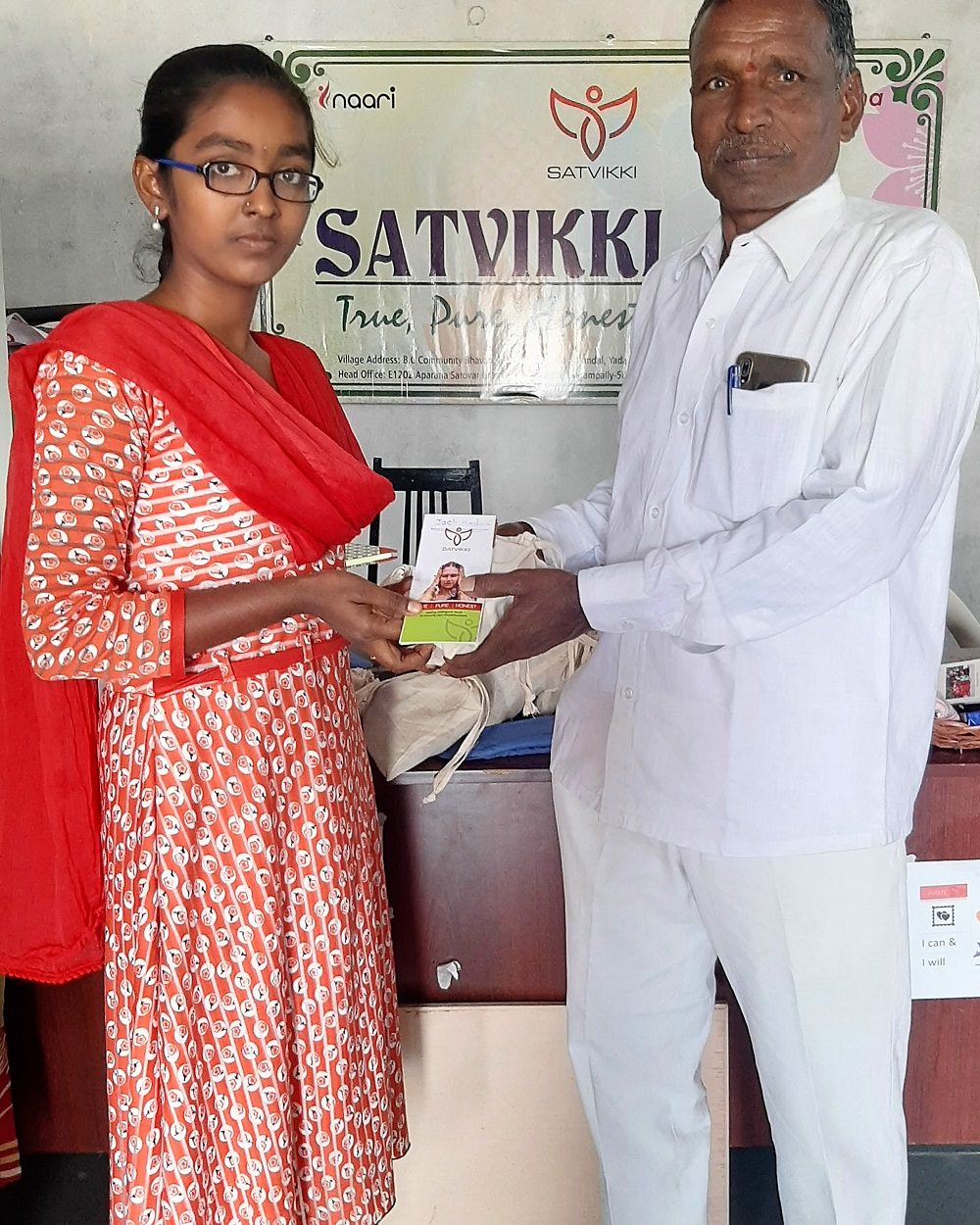
Engaging village seniors and leaders in Cloth pad distribution
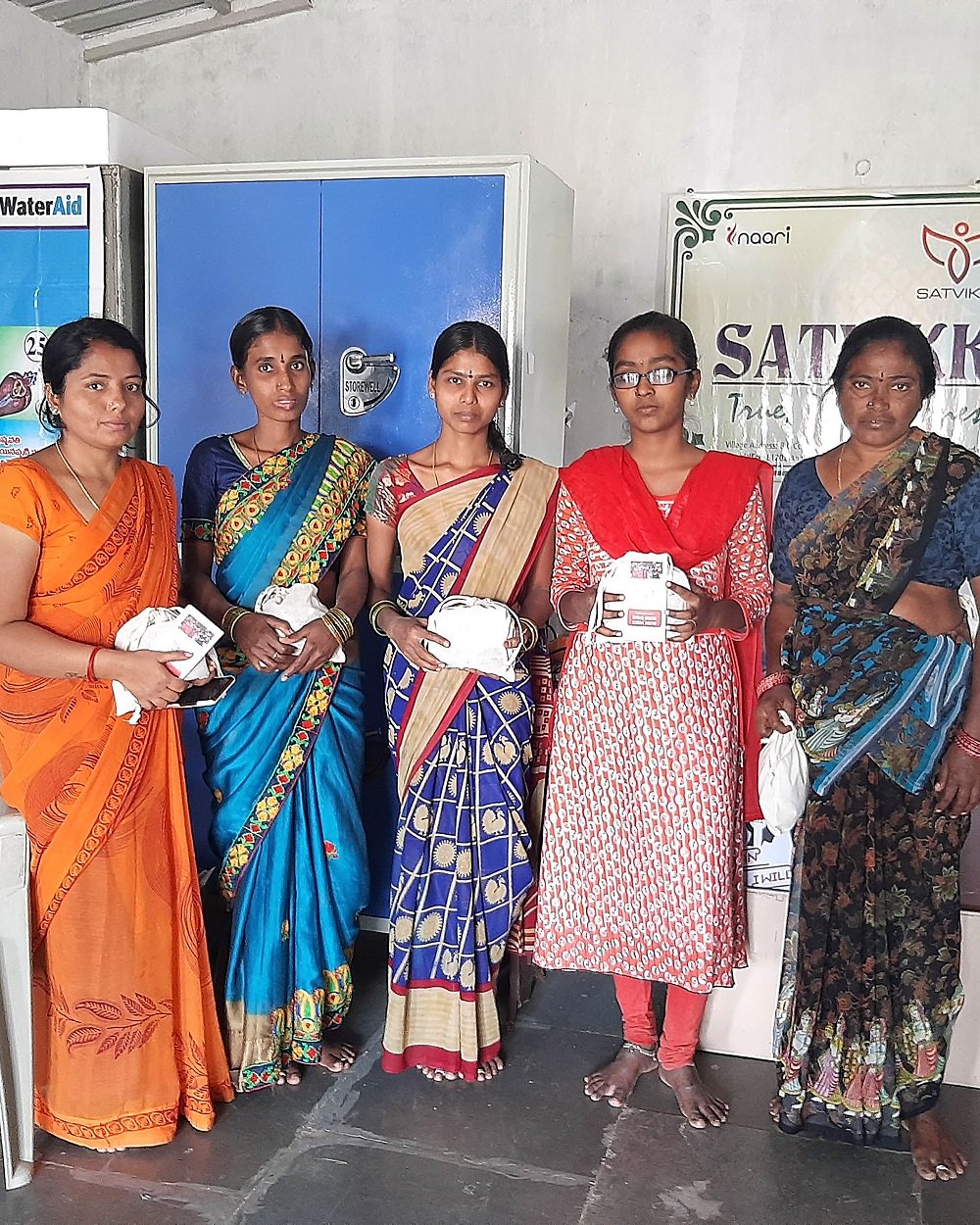
Awareness on Menstrual Hygiene & Cloth pad Hygiene for all
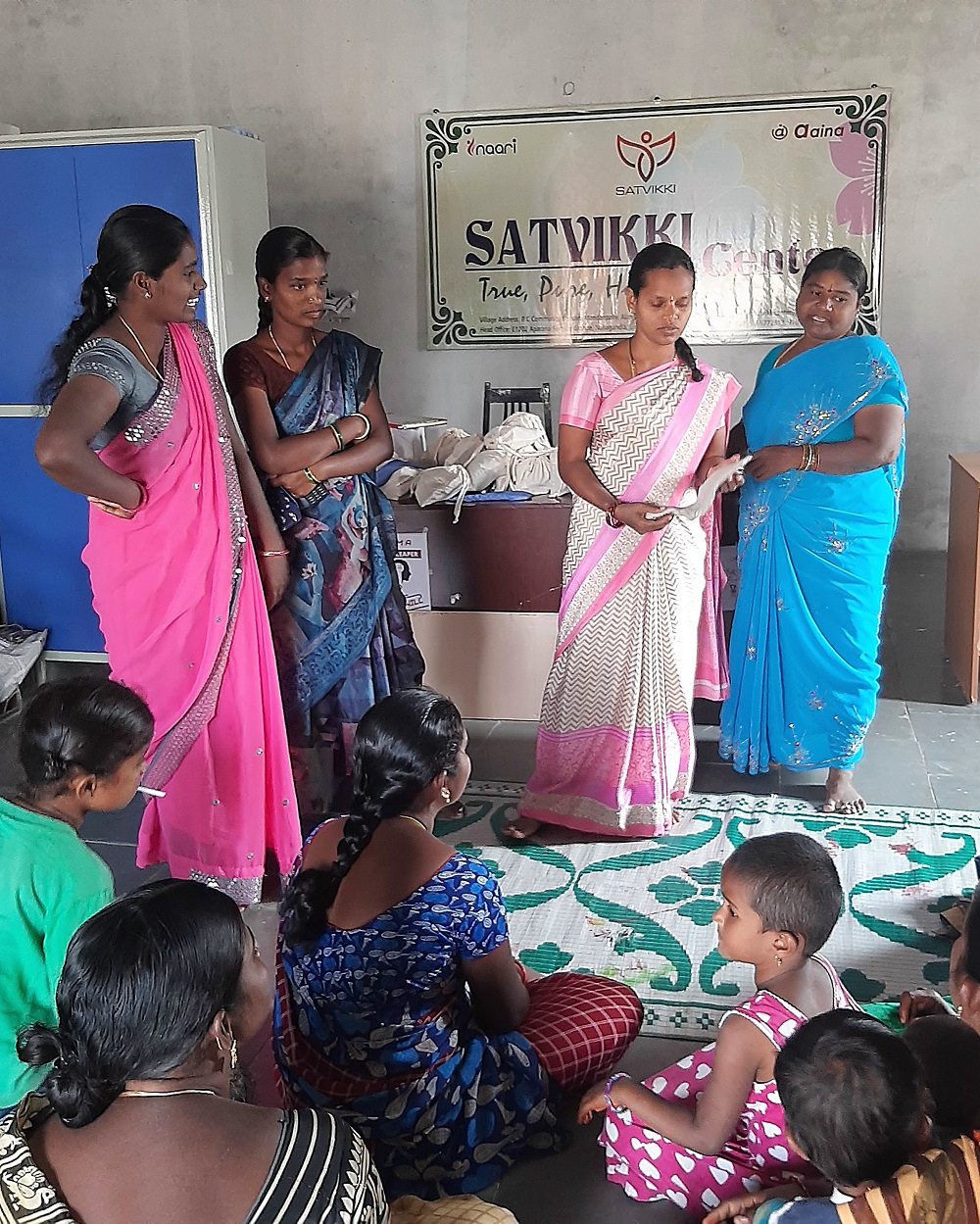
Awareness camp
Roopantaran
Transforming Collective Behaviour Towards Menstruation
Make a Donation
Join the Movement
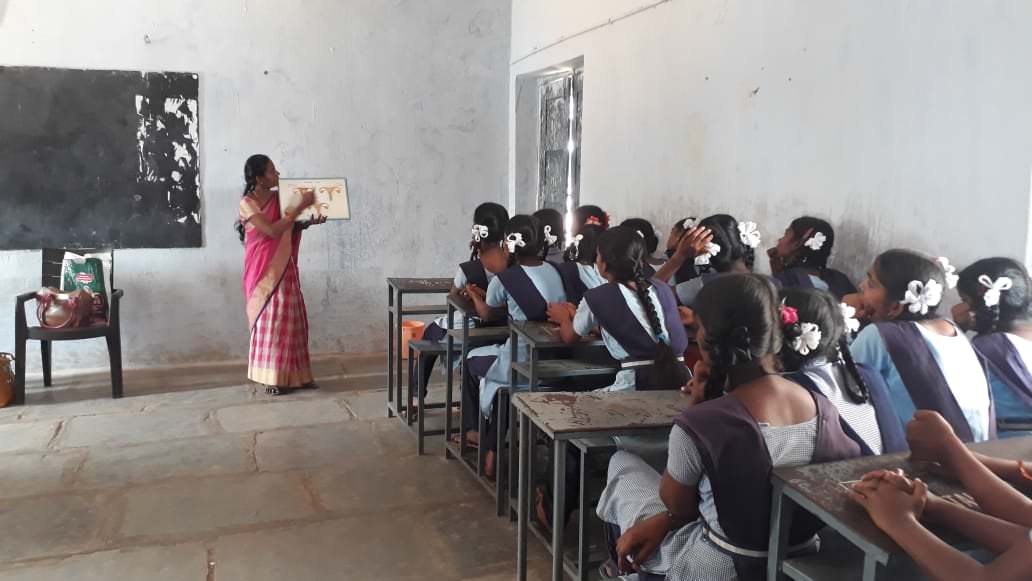
Awareness among girl students
Volunteers & Contributors
Funds Raised
Overview
Menstruation is associated with shame and is still spoken in hush tones in Indian Society as a result subjecting women and adolescent girls to social, religious and cultural restrictions. Despite the digital era with information overload, women from marginalised and economically poor background (in urban slums and rural areas) are still reeling in the cycle of ignorance. According to the report of Indian Ministry of Health, only 12% of menstruators in India have exposure to proper period products. The rest of 88% however, are largely dependent on unsafe materials as their only alternatives. This exposes them to infectious uro-genital diseases such as urinary tract infection (UTI), bacterial vaginosis with skin irritation, vaginal itching, white and green discharge and others.
The need of the hour is changing collective behaviour towards Menstruation!
Some of the Challenges Project aims to address are:
Lack of Information
Lack of access of information and supply of Sustainable options for managing Menstruation. For the economically disadvantaged the recurring cost of disposable napkin pinches their pockets. The cheaper sanitary pads are small in quantity and have lower version material leading to infection.
Health and environmental hazards of Disposable pads
Disposable Sanitary pads have huge health and environmental problems. Studies have proved that Disposable pads contain artificial colours, Super absorbent polymers, and plastic derivates making it difficult to degrade and stay in environment for 800 years. These are also linked to hormone disruption, cancer, birth defects, dryness, and infertility in women due to chemicals used in making them.
Negative narrative on around Menstruation
Social factors like gender inequality are a setback in breaking barriers of stigma around Menstruation. Normalising conversation around menstruation” is the key tool to change mindsets that has propagated inequitable gender norms and power relationships.
Poor information flow across the value chain of menstruation
Communication on menstruation at present is fragmented and has typically focused on use of sanitary pads and personal hyigene . It misses out on providing information on the other important aspects which includes Physiological change on the onset of Puberty, Use of Reusable products, Menstrual Hygiene, Nutrition, access to infrastructure and facilities
The Project aims to reaching out to such women with solutions that will create a significant change towards reproductive health of women in our country
Happening Now
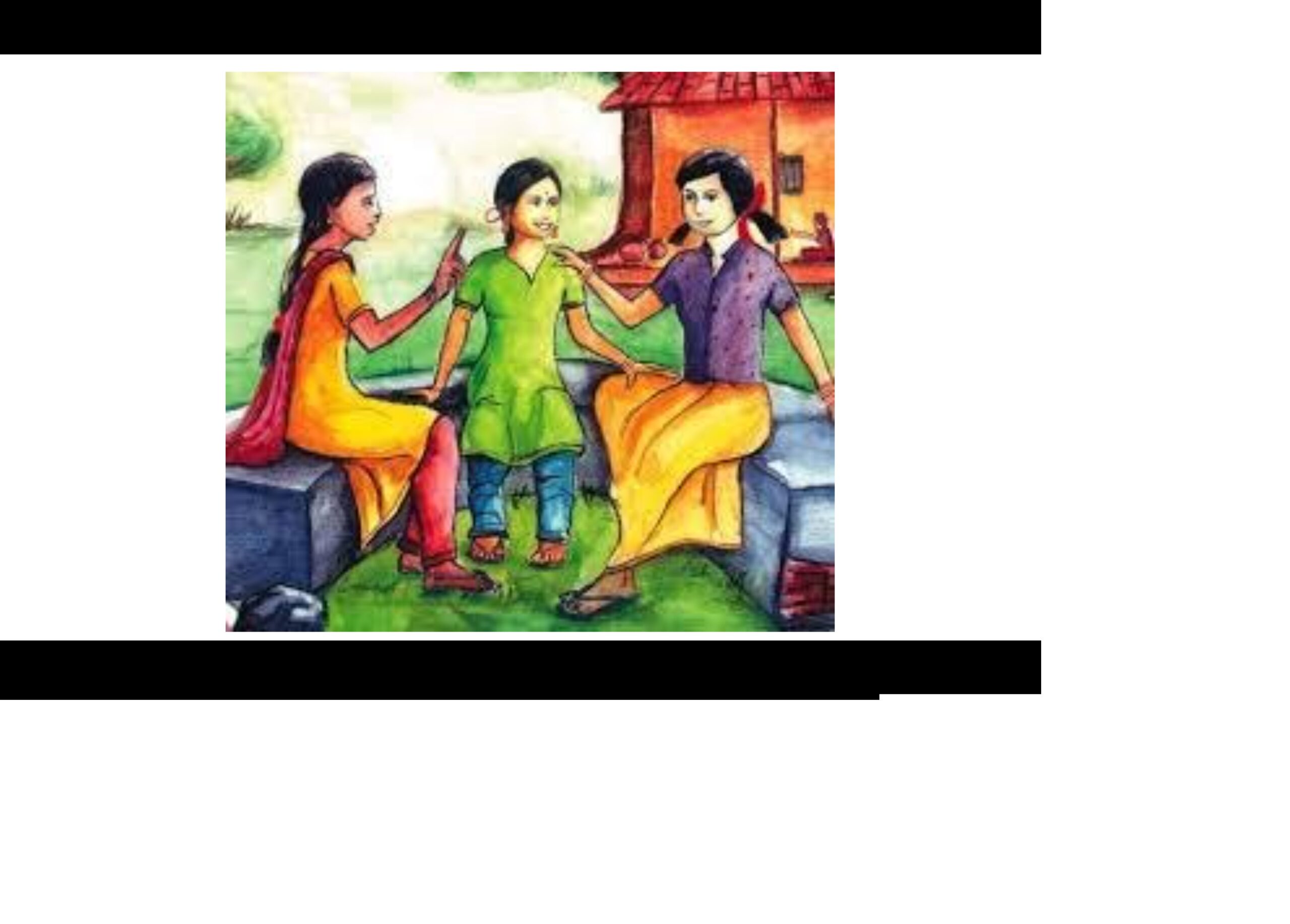
Menstrual Hygiene – A Handy Reference for young girls
Most females attain “Menarche” or the First Menstrual cycle by the age of 11 – 14 Years. During this time their bodies are going through rapid physical changes, thanks to puberty. And Menarche adds a new dimension to the whole development process. Menstruation is a...
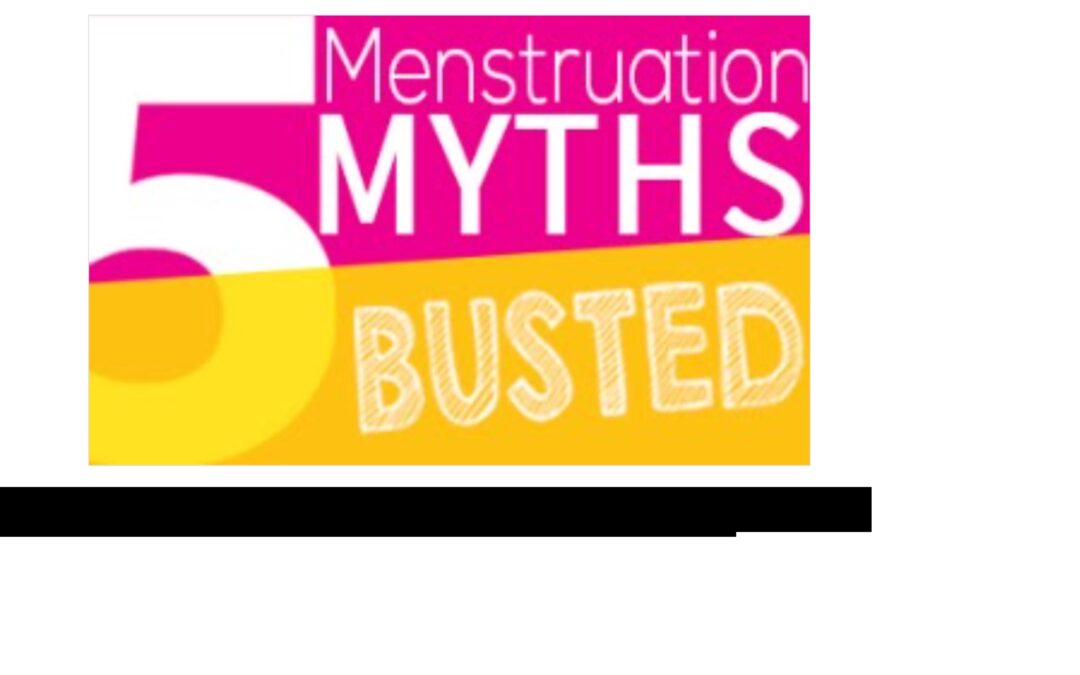
#PeriodPride
Myra, strong independent, career oriented , smart 24 year old working in leading media house had so many dreams to fulfill but suddenly her life took a twist with so called “SOCIETY” pressure on her parents to get her married, and when a well settled, educated ,...
Project Objectives
Enabling Rural Women to adopt Sustainable Menstrual Choices through Awareness and Empowerment Initiatives
To enable women and adolescent girls of the community be Period Positive and Period Ready through our advocacy programs and ensuring sustainable access to
-
- Reusable menstrual products
- MHM services and resources
Project will broadly work in line with two ideologies fostering attitudinal change:
- Period Positive which will aim at Transforming Social norms through:
- Advocacy at the Local Government level
- Community Engagement (CE) through door-to-door awareness
- Period Ready will mobilize the community through “a Resource centre- Saatvikki centre” and focus on providing Sustainable Access to:
- Reusable Menstrual Products like Cloth Pads and Menstrual Cups
- MHM Information, Services and Resources.
Project Location
| Country: | India |
| City/Town: | Mandanapalli Village, Alair Mandal |
| State/Province: | Yadadri Bhuvanagiri District, Telangana |
Never doubt that a small group of thoughtful, committed citizens can change the world; indeed, it’s the only thing that ever has.
Our Approach
The solution to the above challenges lies in transforming communities and minds to be Period Ready and Period Positive.
Period Ready
- A Period Ready school or a community provides or demands a supportive ecosystem to manage menstruation for women and girls .
- Period ready women are aware of safe and hygienic options and have access and freedom to choose products and manage menstruation with dignity.
Period Positive
- A Period Positive community (inclusive of men and boys) perceive menstruation as a process of utmost importance in the reproductive physiology of females.
- Period positive community ensures to create a positive atmosphere in normalising period talks and will focus on reproductive health of its community devoid of myths and taboos.
With a vision of achieving the above ideals the project team has set up a Resource center which is instrumental in catalysing changes in social norms by focusing on, product access and affordability, and collective action through awareness creation.
The Sattivikki unit is a collaborative effort by educators, activists, women hygiene products manufacturers and the government. This will enable a wider outreach making it approachable and acceptable by one and all.
Project Activities
“I am not free while any woman is unfree, even when her shackles are very different from my own”
~Audre Lorde
A) Identification of Project Site
The village Identified for the project is Alair , Mandal :
Total population of the village
B) Project Initiation
The project started with an initial round of visits and talks with the local leaders and community representatives. There were series of visits and meetings at the panchayat office. A total of 9 separate meetings were conducted in the project area. Following are the list of meetings conducted so far
Meeting with community representatives – 2
Meeting local panchayat -1
Meeting with the women representatives of the village- 3
Meeting School principals -3
Once full support was assured from the village representatives a location was identified, which would be ideal as a Resource centre for the project activities
B) Project Initiation
The project started with an initial round of visits and talks with the local leaders and community representatives. There were series of visits and meetings at the panchayat office. A total of 9 separate meetings were conducted in the project area. Following are the list of meetings conducted so far
Meeting with community representatives – 2
Meeting local panchayat -1
Meeting with the women representatives of the village- 3
Meeting School principals -3
Once full support was assured from the village representatives a location was identified, which would be ideal as a Resource centre for the project activities

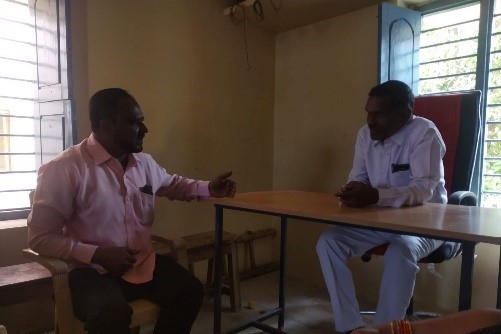
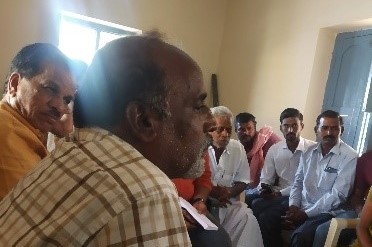
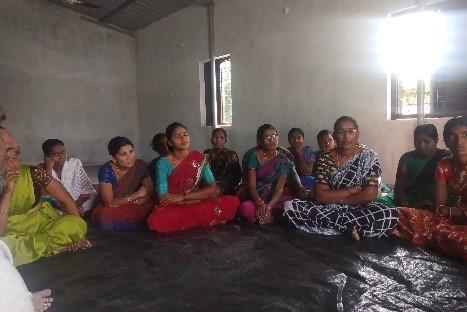
C) Setting up of the Resource Hub- “Sattvikki” center
The place identified with the help of villagers was called as Sattivikki unit. Basic hardware like- chair, cupboard, mats etc was procured to run the centre. The total of 20 women were identified, who have basic stitching skills, with the support of local project coordinator an introductory meeting was conducted at the centre.
D) Administration of baseline questionnaire
Students and household level. A total of 300 households were covered for the baseline questionnaire. 150 questionnaires have been administered at the school level.
E) Training and awareness programme on Menstrual hygiene management at School level
A total of 200 girls have been trained as a part of this project in three government schools and one private school located in the vicinity of the project area. The girls were in the age group of 12 -15 years. Each batch had 30 girls. The mode of training programme was by using flip chart, models, Physical demonstration and interactive games. The training programme touched upon the key aspects of Menstruation- Reproductive system, the why’s and how’ of Menstruation, Managing your cycles, Managing cramps through yoga, nutrition etc. Hygiene practices to be followed during Menstruation.
The response to the school training program has been overwhelming where in students got the opportunity to interact about periods which earlier was a matter of shame.
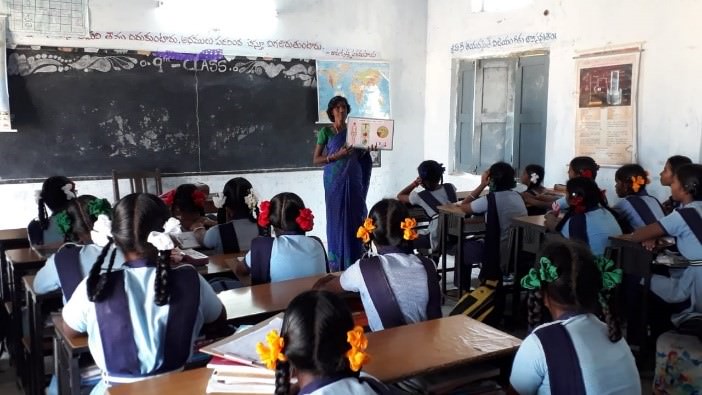
F) Training of women on stitching reusable cloth pads
A total of 20 women were given hands on training on stitching cloth pads. Sample cloths have been provided to these women and they were trained about cutting fabric and hand stitching them. At present these women are practicing what they have learnt and providing finishing touches to the cloth pads.
G) Identifying the core team of the Satvikki unit
Of the 20 women who were trained on stitching cloth pads only 6 remained with the unit post the covid break. These six women were identified by their interest in the unit and extreme commitment they have shown towards sustaining the unit.
H) Procurement of Machinery and hardware
Sewing Machines have been procured (3 as of now) to enable women at the unit to stitch cloth pads. Till date women have stitched 500 pads.
I) Distribution of Mensural Hyigene kits in all household
Saatvikki center is an innovative approach towards effective implementation of MHM practices and will sustain momentum created through Advocacy and Sensitization Activities. The project, through these centres will be a One stop Shop providing all kind of support and services related to managing menstruation through services like counselling and interpersonal communication and period focused activities

